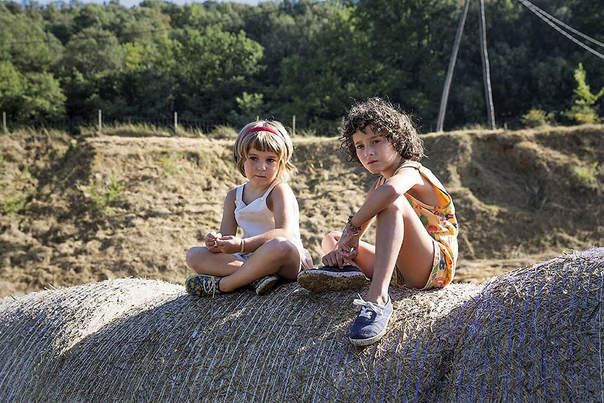SUMMER 1993
****
Director: Carla Simón
Screenwriter: Carla Simón
Principal cast:
Laia Artigas
Paula Robles
Bruna Cusí
David Verdaguer
Isabel Rocatti
Country: Spain
Classification: PG
Runtime: 97 mins.
Australian release date: 2 August 2018
Previewed at: Palace Central Cinemas, Sydney, on 12 July 2018.
Summer 1993 was Spain’s nomination for Best Foreign Film at this year’s Academy Awards and, although it didn't make the final five, it did clean up at a number of other film festivals around the world; according to its pre-publicity, the film achieved a rare 100% positive rating from over 60 international critics. High praise indeed, so does it live up to these accolades? Absolutely. While it won’t appeal to those looking for fast-paced action and there’s not a car chase in sight, it packs an emotional punch that is delivered in such an authentic and empathetic manner that you would be forgiven for thinking you're watching someone's home movies. Its slow-pace belies its power and it creeps up on you, kind of like that story about boiling a frog - the frog doesn't know the water is heating up until it's too late.
Carla Simón’s debut film is autobiographical and depicts her troubled childhood, which was torn apart by the death of both her parents while they were still young. She is portrayed here as Frida (Laia Artigas), a six-year-old city kid who moves from the hustle and bustle of Barcelona to a quiet property in the Catalan countryside to live with her guardians. Her uncle Esteve (David Verdaguer) and his wife Marga (Bruna Cusí) have taken Frida into their home and their three-year-old daughter Anna (Paula Robles) has quickly claimed her as her “new sister”. The family basically live off the land, so it’s a far cry from Frida’s experience in the city. Although life on the farm seems idyllic, the young girl has to overcome her emotions which are profound but not understood. Adding to her confusion is the fact that nobody has explained to her where her mother has gone. Snatches of the adults' overheard conversations only increase her ignorance. The family are loving, and it’s apparent that little Anna embraces Frida's presence, but the absence of the girl’s parents leaves a cloud that is hard to dispel and causes her to act up, taking her frustration out on those in her immediate vicinity.
Summer 1993 is heartbreaking but still manages to deliver a sense of hope for the future. The scenes between the two girls are utterly engaging and their performances are completely natural and believable, particularly when there are just the two of them on screen. Simón obviously struck a rapport with the pair because they seem to have forgotten the existence of the camera. Artigas's face expressively conveys the bewilderment that young Frida is feeling (and young Carla obviously felt) and her subsequent anger and sullenness. You feel as if you are enveloped in the bosom of a real family, caught on screen, as you witness bath time, dinner time, bed time... and tantrum time. This is such a personal, emotional journey that it will resonate with you long after you leave the cinema. Simón has succeeded in bringing her story to life in such a compelling way that she makes you hanker for more.
